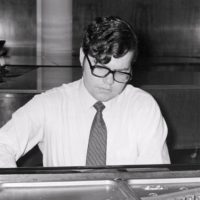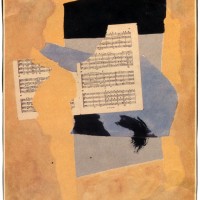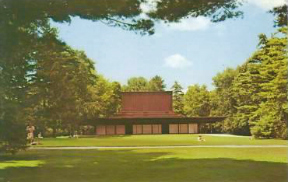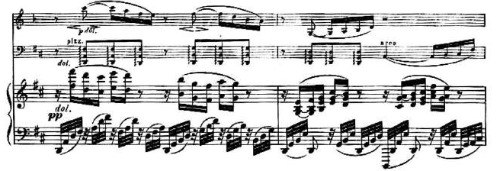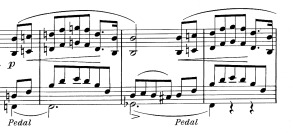My introduction of Emanuel Ax in May in Boston, as he received an honorary doctorate from New England Conservatory. "For a long time the listeners of the world have admired -- for a long time, the listeners in the world have loved Emanuel Ax. Hearing him play Century Rolls, the piano concerto written in 1997 by John Adams for him, first played by Mr. Ax and the Cleveland Orchestra, I was thrilled. As I was thrilled hearing him play Brahms’ … [Read more...]
Rising Tide
Patterns of rising and falling inflection are vital to a lot of music. Purely instrumental music often encodes emphasis-patterns that resemble speech, or song. (Linguists prefer the term "intonation" to signify these rises and falls.) In the notation of European classical music, at least since the 18th century, musicians have used "slurs" as a means of indicating phrase groupings and stress patterns. Describing two notes written under a slur, … [Read more...]
Misprision
In performing Billy Strayhorn's "Lush Life," some singers deliver the subtle, and possibly difficult to pronounce word combination "distingué traces" as "distant gay traces." A British lawyer or Harold Bloom might call this a "misprision." We may willfully twist a text to achieve a particular meaning. Or perhaps we are always getting it wrong. Bloom writes definitively: "Every poem is the misreading of a parent poem... There are no … [Read more...]
Ensemble
Nantes, 2015 It's the last week of January, and I'm in France for the yearly mega-festival La Folle Journée. During 5 days, 330 concerts are being presented! (I play 5.) Folle Journée is the work of many people -- especially René Martin, founder and artistic director of Folle Journée. Recently, talking with Tim Page, I realized just what significant influences the ideas of a few concert presenters, a few producers (and critics) have been on … [Read more...]
Open String
Piano music may reference or be contextualized by music made on other instruments, or sung. Some piano music mimics other instruments. The mimicry might be subtle, or subliminal. In Brahms's Intermezzo, Opus 118, No. 1 -- revered by Milton Babbitt -- there's an extraordinary cadence: Brahms: Intermezzo, Opus 118, Number 1 In my ear/mind, the low open strings (C and G) of the cello are sounding. Musical norms or expectations encoded … [Read more...]
Miraggio
I learned Brahms's Opus 114 quickly -- about ten days from my first encounter with the music to the performance. As a fellow at Tanglewood, I was working on several chamber and ensemble pieces. There were coachings. (Joel Krosnick worked with me and my Brahms colleagues.) The performance went well. There was one place in the last movement when I didn't come in properly -- I played a conspicuously wrong harmony. For years, I avoided listening to … [Read more...]
Sonic Enharmonic
Words can be bent in pronounciation to suggest other words -- subtly shading, or adding on to signification. In B.o.B.'s "So Good," the word groups "how you feel [fe-el]," "fantasy oh," "put your feet up," and "Señorita" are made almost to rhyme, and conform to the same four-syllable emphasis-pattern. The sound is the word is the music is the sound. It's joy-inducing virtuoso display. Wordless music also offers possibilities for sonic … [Read more...]
Arts & Crafts
I'm printing slightly enlarged versions of the pages of a score by Philip Glass that I will play at the LPR Glass-birthday event later this month. The physical resizing, repaginating, and relineating of written music sometimes makes practicing and performing easier. For a long time, this work was accomplished with photocopying, scissors, or paper cutter, and adhesive tape. The pianist Judith Gordon called it "arts and crafts." Some outsized … [Read more...]
Catalyzing Adulteration
I'm sipping a single-barrel bourbon. Rather strong. I add some drops of water, and then a few more. And the extraordinary, intense dark taste comes into sharp focus. It's like adding adrenaline to my playing of Brahms's music in Jordan Hall. Or adding salt to soup (more if it's cold). Or adding momentary touches of pedal to an already carefully played legato phrase of piano music. … [Read more...]
Unhinged
C. P. E. Bach writes in his treatise: "A musician cannot move others unless he too is moved. He must of necessity feel all of the affects that he hopes to arouse in his audience, for the revealing of his own humor will stimulate a like humor in the listener. In languishing, sad passages, the performer must languish and grow sad. Thus will the expression of the piece be more clearly perceived by the listeners...." It's an old and ongoing … [Read more...]
Intertext
In his anxiety, Johannes Brahms read the slow movement of Ludwig van Beethoven's piano sonata, opus 10, number 3, and penned his own intermezzo in E-flat Minor, opus 118, number 6: (If D goes to C-sharp, then D Minor can go to E-flat Minor. Up can be down. 6/8 and eighth-notes, or 3/8 and sixteenths. Largo e mesto. Dies Irae? D-Es?) Earlier misprision led Brahms from playing the slow movement of Beethoven's Opus 2, number 2, to … [Read more...]
Two Rooms, NYC
To have lived in grander rooms, I sometimes think, would have been -- well, grander. Until I walk into my other room, quickly come to the piano and see the window I looked out of, as I learned Brahms's Concertos. … [Read more...]

